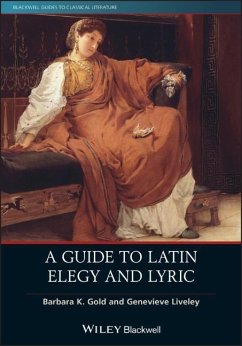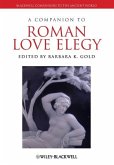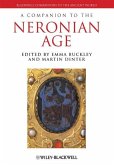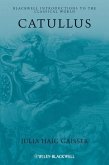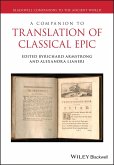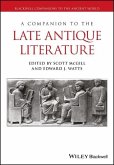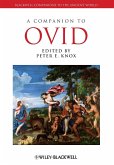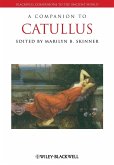Provides the necessary context to read elegiac and lyric poetry, designed for novice and experienced Classics and Latin students alike
A Guide to Latin Elegy and Lyric explores the language of Latin poetry while helping readers understand the socio-cultural context of the remarkable period of Roman literary history in which the poetry was composed. With an innovative approach to this important area of classical scholarship, the authors treat elegy alongside lyric as they cover topics such as the Hellenistic influences on Augustan poetry, the key figures that shaped the elegiac tradition of Rome, the motifs of militia amoris ("the warfare of love") and servitium amoris ("the slavery of love") in Latin love elegy, and more.
Organized into ten chapters, the book begins with an introduction to the literary, political, and social contexts of the Augustan Age. The next six chapters each focus on an individual lyric and elegiac poet--Catullus, Horace, Tibullus, Propertius, Ovid, and Sulpicia--followed by a survey of several lesser-known poets and post-Augustan elegy and lyric. The text concludes with a discussion of major tropes and themes in Latin elegy and lyric, and an overview and analysis of key critical approaches in current scholarship. This volume:
_ Includes full translations alongside the Latin throughout the text to illustrate discussions
_ Analyzes recurring themes and tropes found in Latin poetry such as sexuality and gender, politics and patronage, myth and religion, wealth and poverty, empire, madness, magic, and witchcraft
_ Reviews modern critical approaches to elegiac and lyric poetry including autobiographical realism, psychoanalysis, narratology, reception, and decolonization
_ Includes helpful introductory sections: "How to Read a Latin Elegiac or Lyric Poem" and "How to Teach a Latin Elegiac and Lyric Poem"
_ Provides information about each poet, an in-depth discussion of some of their poetry, and cultural andhistorical background
_ Features a dedicated chapter on Sulpicia, offering readers an ancient female viewpoint on sex and gender, politics, and patronage
Part of the acclaimed Blackwell Guides to Classical Literature series, A Guide to Latin Elegy and Lyric is the perfect text for both introductory and advanced courses in Latin elegy and lyric, accessible for students reading the poetry in translation, as well as for those experienced in Latin with an interest in learning a different approach to the subject.
Hinweis: Dieser Artikel kann nur an eine deutsche Lieferadresse ausgeliefert werden.
A Guide to Latin Elegy and Lyric explores the language of Latin poetry while helping readers understand the socio-cultural context of the remarkable period of Roman literary history in which the poetry was composed. With an innovative approach to this important area of classical scholarship, the authors treat elegy alongside lyric as they cover topics such as the Hellenistic influences on Augustan poetry, the key figures that shaped the elegiac tradition of Rome, the motifs of militia amoris ("the warfare of love") and servitium amoris ("the slavery of love") in Latin love elegy, and more.
Organized into ten chapters, the book begins with an introduction to the literary, political, and social contexts of the Augustan Age. The next six chapters each focus on an individual lyric and elegiac poet--Catullus, Horace, Tibullus, Propertius, Ovid, and Sulpicia--followed by a survey of several lesser-known poets and post-Augustan elegy and lyric. The text concludes with a discussion of major tropes and themes in Latin elegy and lyric, and an overview and analysis of key critical approaches in current scholarship. This volume:
_ Includes full translations alongside the Latin throughout the text to illustrate discussions
_ Analyzes recurring themes and tropes found in Latin poetry such as sexuality and gender, politics and patronage, myth and religion, wealth and poverty, empire, madness, magic, and witchcraft
_ Reviews modern critical approaches to elegiac and lyric poetry including autobiographical realism, psychoanalysis, narratology, reception, and decolonization
_ Includes helpful introductory sections: "How to Read a Latin Elegiac or Lyric Poem" and "How to Teach a Latin Elegiac and Lyric Poem"
_ Provides information about each poet, an in-depth discussion of some of their poetry, and cultural andhistorical background
_ Features a dedicated chapter on Sulpicia, offering readers an ancient female viewpoint on sex and gender, politics, and patronage
Part of the acclaimed Blackwell Guides to Classical Literature series, A Guide to Latin Elegy and Lyric is the perfect text for both introductory and advanced courses in Latin elegy and lyric, accessible for students reading the poetry in translation, as well as for those experienced in Latin with an interest in learning a different approach to the subject.
Hinweis: Dieser Artikel kann nur an eine deutsche Lieferadresse ausgeliefert werden.

